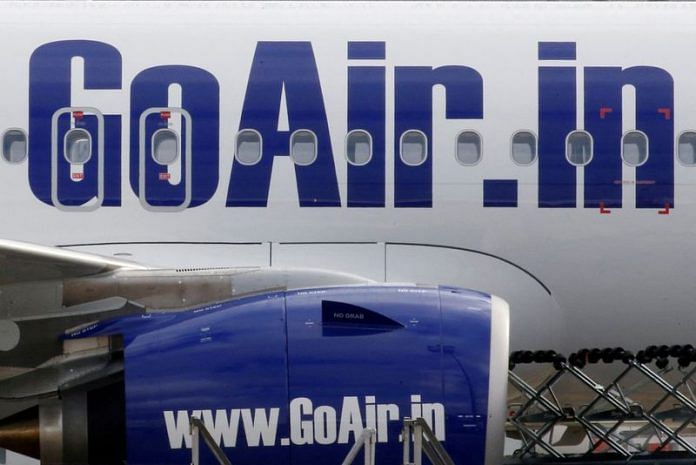(Reuters) – Cash-strapped Indian airline Go Airlines (India) Ltd, recently rebranded as Go First and previously as Go Air, filed for bankruptcy on Tuesday, blaming “faulty” Pratt & Whitney engines for the grounding of about half its fleet.
Here are some details on the U.S. enginemaker’s geared turbofan (GTF) engines, which Go First says are at the heart of the crisis.
WHEN DID THE PROBLEM START?
In 2016, Go First received its first A320neo aircraft powered by GTF engines after placing an order for 72 narrow-body jets from Airbus. Pratt & Whitney is the exclusive engine supplier for the airline’s A320neo aircraft fleet.
Go First said it picked the engines because the U.S. firm, which competes with CFM International, offered better fleet-management terms, and the engines would be more fuel efficient, quieter and require less service.
But the GTF engines, for which Pratt invested $10 billion to develop, were found to have problems involving the fan blades, an oil seal and the combustion chamber lining.
The issues with the GTF engines grounded several A320neo planes in 2017, a year after the engine was launched. In India alone, IndiGo and Go First, among the biggest customers for the A320neo planes, grounded as many as 12 planes at one point, and cancelled dozens of flights.
WHAT HAPPENED NEXT?
Go First said Pratt & Whitney agreed in 2017 to compensate it for engine “support”. The agreement, which ran through 2019, provided unspecified compensation to the airline for days when planes were grounded with engines that needed to be changed or serviced.
But in 2020, Go First began to experience “more severe” engine failures, and in 2022 financial disputes erupted between the two companies over the engine replacement and maintenance arrangement.
In February 2023, Pratt proposed a plan to supply replacement engines at a rate “four times lower than the failure rate,” leading Go First to file for emergency arbitration in Singapore a month later.
Global supply chain shortages are now slowing production of aircraft and components for maintenance and repair, including engines.
Go First said the number of aircraft because of “faulty engines” has ballooned from 7% of its fleet in December 2019 to 50% in December 2022, costing it 108 billion rupees ($1.3 billion) in lost revenue and added expenses.
Pratt said it was “committed to the success of our airline customers, and we continue to prioritise delivery schedules for all customers.”
Greg Hayes, CEO of Pratt owner Raytheon Technologies Corp, said in February that GTF engines’ reliability has not been up to expectations and that the company was working to fix problems.
IndiGo, India’s largest airline and a major customer of A320neo, is facing a similar problem with Pratt engines for some of its fleet, but has been able to better navigate the crisis because of its much larger fleet size and better negotiations with the vendor, according to Jefferies analyst Prateek Kumar.
(Reporting by Kevin Krolicki; Compiled by Miyoung Kim. Edited by Gerry Doyle)
Disclaimer: This report is auto generated from the Reuters news service. ThePrint holds no responsibilty for its content.



